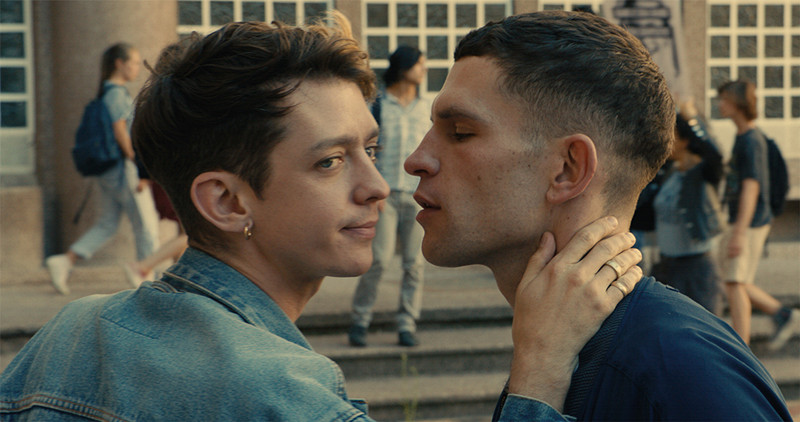
2017 has undoubtedly been a banner year for queer cinema. Rarely has a single year boasted queer stories so great and LGBTQ characters so diverse and so realistic as this past year.
The Sundance film festival kicked things off in January by premiering a handful of LGBTQ films that made waves all throughout the year. The following month, buoyed by ‘Moonlight’ winning Best Picture, queer cinema went full speed ahead and gave us a year like no other, with a varied selection of films from all corners of the world.
This list takes a look at some of the most important LGBTQ films of the past year. Films that have broken boundaries, earned critical acclaim, awards and even pierced through the mainstream and became bonafide box office successes, genre pieces with authentic queer characters or understated indie movies putting a unique spin on a more traditional story.
10. Women Who Kill (dir. Ingrid Jungermann)
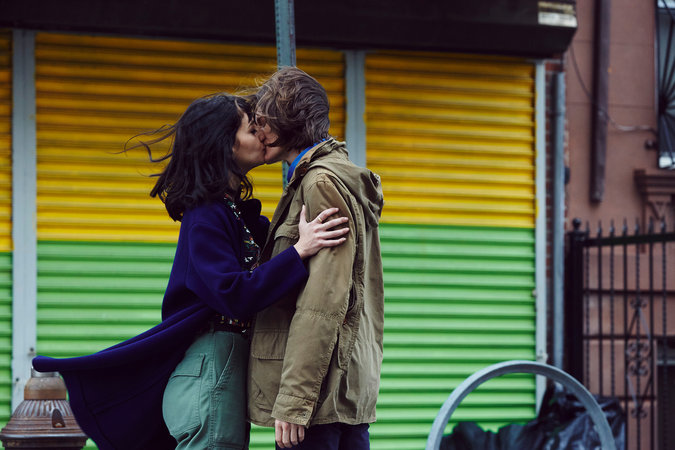
Although they’ve broken up, Morgan (Ingrid Jungermann) and Jean (Ann Carr) still maintain a working relationship as co-hosts of ‘Women Who Kill’, a podcast revolving female serial killers. When Morgan begins dating the mysterious Simone (Sheila Vand), the true crime aficionados let their suspicions run rampant as they start believing that Simone may have more in common with their favourite podcast subjects than they think.
Morgan’s own insecurities and specifically her fear of commitment are exacerbated throughout the film as her own paranoia takes over. This darkly comedic spin on modern love delights through its dry humour and wit.
The script is full of macabre little gems, like the sponsor of their podcast being a hardware store advertised as a one stop shop for everyone looking to get a dead body off their hands or the film starting off with Morgan and Jean arguing over which notorious female serial killer is the hottest.
Ingrid Jungermann (who pulls triple duty here as actor/writer/director) manages to find the perfect balance between the deadpan humour that permeates the script and the suspenseful moments that give it a darker edge all the while staying true to her characters and avoiding the cliches that a first-time director would be prone to make. Modern romance has never felt so dangerously funny.
9. Lovesong (dir. So Yong Kim)
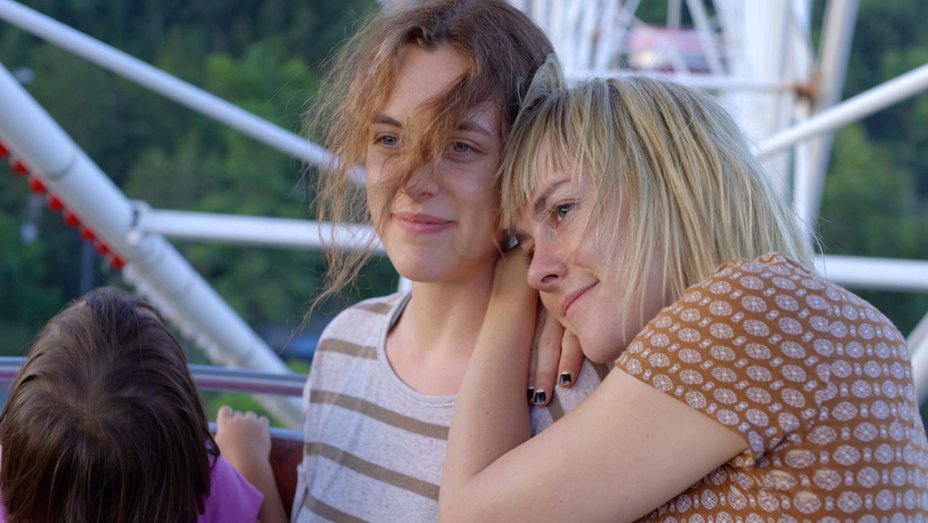
Sarah (Riley Keough) is a stay-at-home mom who embarks on a road trip with her longtime friend Mindy (Jena Malone). Feeling neglected by her husband (Cary Fukunaga – in a blink and you’ll miss it cameo) and trying to elude the feeling of numbness that has been overpowering her, she finds comfort in Mindy and the two share some intimate moments that will leave a lasting impression. Years later, they try to reconnect at Mindy’s wedding.
‘Lovesong’ is an intimate portrayal of love and the connection between people. Sarah and Mindy’s relationship is never governed by lust, but by a deeper connection.
The film’s structure (the first half presents the road trip they embark on and the second half finds them three years later, at Mindy’s wedding) showcases the strength of their bond. Even without keeping in touch in the years between, once the awkwardness of their initial reconnection fades, they are able to regain a bit of the comfort they found in each other.
Riley Keough gives a quiet but powerful performance as Sarah, while Jena Malone perfectly embodies Mindy’s free spirit. The end-credits song that gives the film its title is actually written and performed by Jena Malone, ending the film on a perfect note.
8. The Wound (dir. John Trengrove)
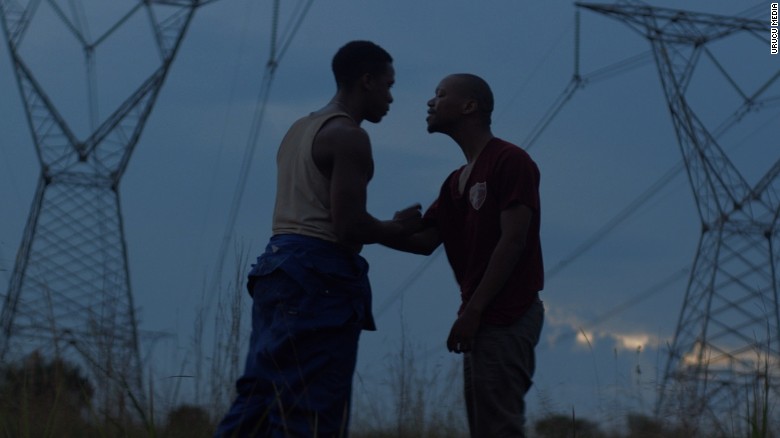
Set against the backdrop of a traditional circumcision ritual in the Xhosa community called ulwaluko, ‘The Wound’ follows the closeted relationship between Xolani (Nakhane Touré) and Vija (Bongile Mantsai) both instructors for the boys going through the rite of passage. As the ritual requires the initiates to live on top of a mountain for up to a month, tensions start to build as Xolani’s initiate, Kwanda (Niza Jay Ncoyini), a city boy from a rich family who is queer himself, discovers Xolani and Vija’s relationship.
The South African feature, shortlisted for the Best Foreign Language film at the Academy Awards (although it ultimately did not make the final cut), offers a rare glimpse into a world that we know so little of. The film attracted controversy in South Africa with members of the Xhosa community criticising the film for exposing sacred traditions and taking advantage of their culture.
However, John Trengrove uses the ritual only as a means of contextualising Xolani and Vija’s relationship. The queer narrative is set against the very tradition of passing into manhood in order to evoke the rigid norms of masculinity that the community practices The same rigidness that Kwanda doesn’t yet understand but will learn the hard way.
Xolani and Vija have been using this setting as a means of meeting up with each other for years. Xolani is invested emotionally and would do anything to cater to Vija, he always offers him his cigarette as soon as he lights it up and even offers him money to be able to support his children. Vija however, governed by the image of hyper masculinity that he conjured for himself, tries to keep his relationship with Xolani strictly physical.
Once the two share a moment of tenderness and are in danger of being exposed, it’s up to Xolani to choose between being open to his true self or continue hiding.
7. Beach Rats (dir. Eliza Hittman)
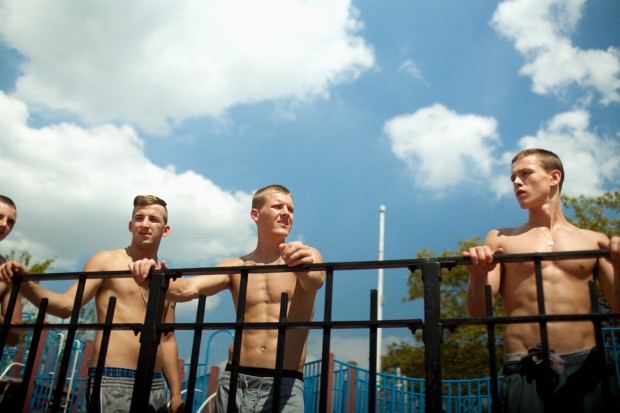
Frankie (Harris Dickinon) a Brooklyn teen trying to escape from his suffocating family life (terminally-ill father and overbearing mother) finds release in drugs, a new girlfriend and chatting with older men online. Eventually, Frankie begins meeting the men in different cruising sites or motels all the while trying to avoid his gang of deadbeat friends and avoid arising his girlfriend’s suspicion.
While evoking quite a few traits of a more straightforward coming of age story, Eliza Hittman’s second feature is arresting in its sublime portrayal of Frankie as a teen exploring his sexuality without any labels.
The camera lingers on Frankie’s body as he takes photos of himself in a dim light or as he strips naked during a motel rendezvous. Frankie is exploring what his body wants just as he admits to a stranger online that he has no idea what box he’s supposed to fall into.
Hélène Louvart’s cinematography brilliantly renders the suffocating summer feeling of Brighton Beach and with an astounding performance from British actor Harris Dickinson at its center, ‘Beach Rats’ is a worthy exploration of teen sexuality.
6. Princess Cyd (dir. Stephen Cone)
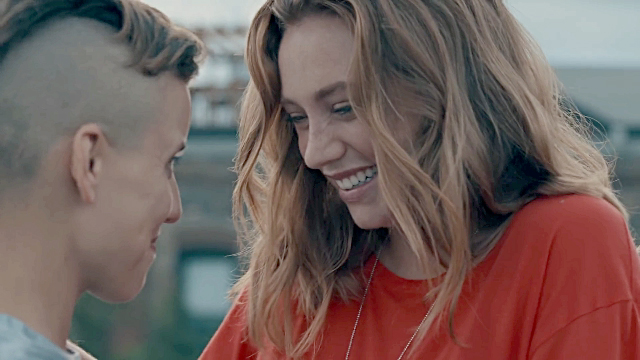
Similar to ‘Beach Rats’,‘Princess Cyd’ tells the story of a teenager discovering her burgeoning sexuality, but in a vastly different context. Cyd, the titular character, wishing to take a break from living with her father, visits her aunt (Rebecca Spencer) for a few weeks. There, she falls in love with Katie, who works in the local coffee shop.
The film doesn’t focus solely on Cyd discovering and embracing her fluid sexuality, instead it builds an endearing mother-daughter relationship between Cyd and her aunt, a celebrated author. Her aunt regains some of the freedom she relinquished in her youth through her interactions with Cyd, getting in tune with her own body and sexual desires, while Cyd learns more about life, art and spirituality from her aunt’s circle of literary friends.
It feels fitting that a lot of discussion in the movie surrounds literature, as the entire film and each character’s arc could be framed into a short story, just like the ones Miranda wrote and Cyd peruses at one point.
Stephen Cone alludes to some traumatic events in Cyd’s past in the very beginning of the film but threads around what feels like a ticking time bomb with skill and when he does return to it, he frames the reveal in a moment of supreme intimacy as Cyd shares her past with Katie. It’s a powerful moment in an otherwise quiet and understated film.